What does 'sensitive skin' mean? Do you really have it and how can you care for it?
From demystifying sensitive skin to the dos and don’ts, we ask the experts to shed light on why many of us often believe that we’re dealing with skin sensitivities.
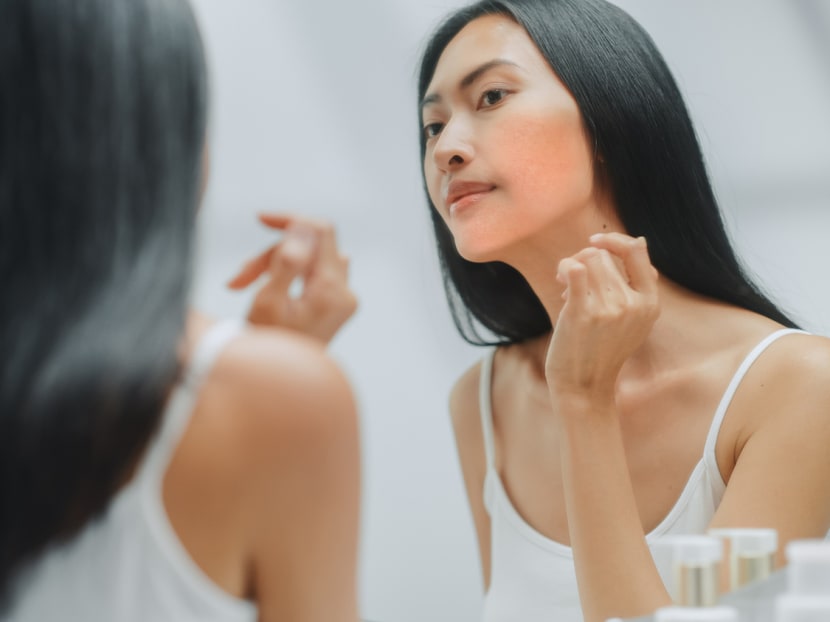
What is sensitive skin? (Photo: iStock)
It seems that one of the most common skin concerns these days is sensitive skin. And of course, the pandemic didn’t make it any better with the use of masks. But now that mask-wear is no more, why do people still believe that their skin is sensitive?
According to a meta-analysis study based on published data comprising of 26 studies representing 18 countries, skin sensitivity is a global concern amongst not only women, but men too. It was found that 71 per cent of the 51,783 people polled self-declared that they had sensitive skin to some degree, with 40 per cent of the individuals believing that they have very or moderately sensitive skin.
So is sensitive skin all in our minds?
WHAT IS SENSITIVE SKIN?
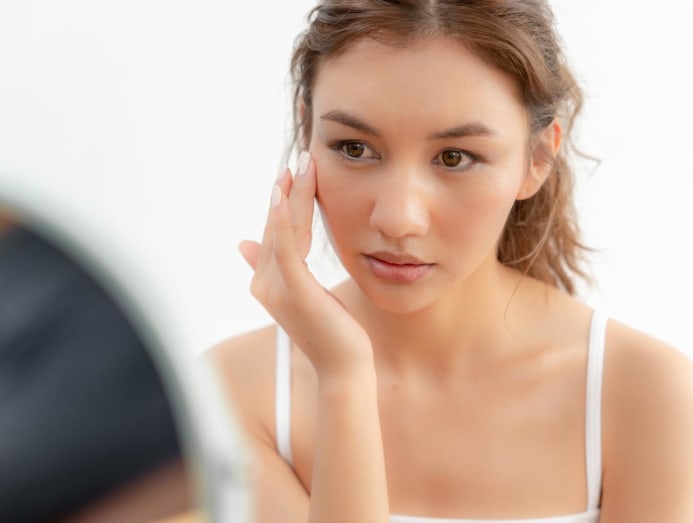
According to Dr Lynn Chiam, a dermatologist at Children & Adult Skin Hair Laser Clinic, Mount Elizabeth Novena Specialist Medical Centre, “sensitive skin is defined as hyper-reactivity of the skin triggered by contactant and/or environmental factors”.
In addition, when it comes to the symptoms, Dr Chiam explained that sensations described by many patients include itching, burning, stinging, tingling, tightness, peeling, redness, bumps, hives or dryness. More importantly, she added that these symptoms could “occur minutes to hours after contact with a stimulus”.
But does it mean if my skin is dry, it’s also sensitive? Not necessarily because it depends on the underlying cause, said Dr Tan Ying Zhou, medical director of Mizu Aesthetic Clinic. “Saying that your skin is sensitive can mean many things as it is generally a broad term and it can present itself in a number of ways.”
Sensitive skin often points to “certain underlying skin conditions that can be generic in nature, and not caused by external agents, but rather activated or aggravated by triggering factors.
In short, sensitive skin often points to “certain underlying skin conditions that can be generic in nature, and not caused by external agents, but rather activated or aggravated by triggering factors,” explained Dr Tan.
Added Dr Chiam, “although the vast majority of patients who seek medical advice for sensitive skin are those with an underlying skin inflammation like eczema and acne, there is an increasing number of patients who present with symptoms of sensitive skin without any clinical signs”. At her clinic, Dr Chiam shared that 10 to 15 per cent of patients with sensitive skin do not exhibit any underlying dermatitis.
BUT THERE’S MORE TO SENSITIVE SKIN
Here’s an interesting fact: According to Dr Tan, there are different types and varying degrees of skin sensitivity.
Some of these, said Dr Tan, include medically-related sensitivity due to skin conditions such as contact dermatitis, eczema, psoriasis and rosacea, reactive skin that gets easily irritated by contact with skin care products or environmental triggers, and thinner skin with more superficial blood vessels, which makes the skin more sensitive to touch or friction.
At the same time, Dr Chiam also added that when it comes to sensitive skin, the symptoms can manifest itself in two forms – objective and subjective.
The objective form is caused by a basic dermatitis that alters the protective skin barrier. This can manifest itself in visible symptoms such as redness, rash, peeling and spots, which is what you see if you suffer from eczema or acne.
Subjective form, on the other hand, is when you refer only to the symptoms, without any visible symptoms like redness or rash. This, said Dr Chiam, is usually self-diagnosed.
THE CAUSES OF WHY YOUR SKIN IS SENSITIVE
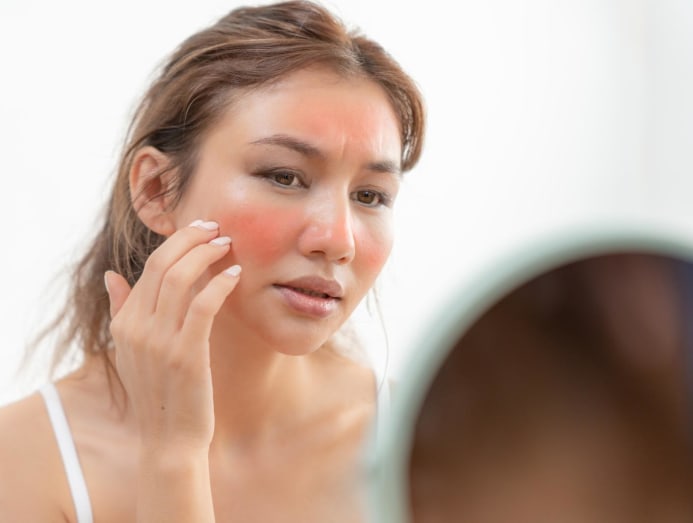
And while there are a few factors that can trigger skin sensitivity, the main factor that causes skin to become sensitive is an impaired skin barrier function.
“People with sensitive skin have weakened skin barriers and often exhibit signs of irritation and inflammation,” shared Dr Tan. This impaired barrier, explained Dr Chiam, “may trigger both vascular hyperactivity and sensory perceptions”.
So why is this important? “An impaired skin barrier leads to the increase in the permeability of the stratum corneum (top most layer of the skin), leading to water loss and greater penetration of harmful substances. These substances, in turn, stimulate the nerve endings of the skin [that can lead to] stinging, burning and itching sensations.”
The reason why this happens is the alteration of our skin’s pH levels, which can lead to its increased sensitivity. Dr Chiam elaborated that the maintenance of the skin’s pH level, which ideally should be at pH5.5, on the skin surface keeps the skin barrier intact. “When the barrier is compromised, the penetration of substances leads to the inflammatory reaction with release of a series of cytokines (signalling proteins that help control inflammation).”
Other common triggers include environmental factors, such as cold, heat, sun, pollution and moisture, as well as coming into contact with a cosmetic product that might contain potentially irritating ingredients such as AHAs (alpha-hydroxy acids), propylene glycol, alcohol and fragrances.
It’s also important to note that when it comes to beauty products, be it makeup or skincare, skin sensitivity can be triggered not just after one use, but even after several uses due to its cumulative effect, added Dr Chiam.
CAN YOU REDUCE YOUR SKIN’S SENSITIVITY?
To a certain extent, yes.
“It has been studied that individuals with increased water loss through the first layer of the skin are prone to intolerance to products in contact with the skin. Thus, adequate hydration of the skin improves the symptomatology of patients with sensitive skin,” said Dr Chiam.
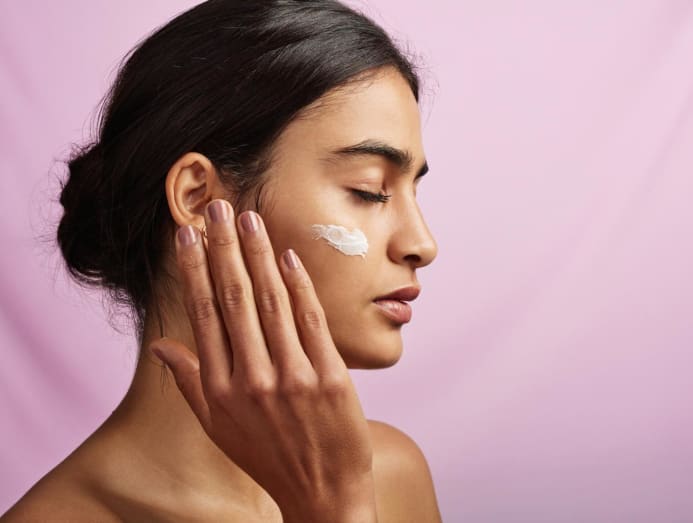
In short, this means that with proper skin hydration, it can help “recover and maintain the skin protection barrier”, Dr Chiam added.
Though in the instance “if the skin is naturally sensitive due to diagnosed skin conditions like eczema, it may not be something that can be reversed,” said Dr Tan. And if so, he advised identifying the triggers and avoiding them as much as possible while using the right products for your skin type.
This is because the skin sensitivity is caused not only by an altered skin barrier, but also the presence of inflammation, explained Dr Chiam.
However, if your sensitive skin is due to poor maintenance or the wrong use of products, Dr Tan shared that its sensitivity can be reduced and even reversed simply by correcting your skincare routine. Added Dr Tan, “if your skin reacts only to a product or type of product, then your skin is not sensitive [by nature], it is just sensitive to that one product”. And by removing the cause, your skin should become less reactive.
DOS AND DON’TS OF CARING FOR YOUR SENSITIVE SKIN
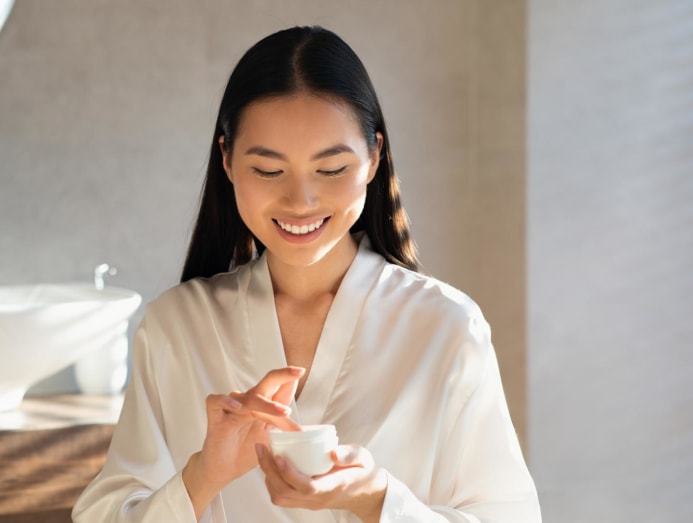
- Look for gentle, hypoallergic and non-comedogenic formulations, and focus on hydration with moisturising and emollient products. Ingredients that can help keep sensitive skin healthy include hyaluronic acid, ceramides, squalene, glycerin and niacinamide.
- Eliminate unnecessary ingredients in your skincare products. Instead, choose products with fewer ingredients as this will decrease the possibility of allergens and common irritants that may be present in the formulation.
- Avoid substances that can lead to the impairment of the skin barrier, such as ethanol, propylene, glycol and AHA/BHA (alpha and beta hydroxy acids)
- Opt for powder makeup instead of those that come in cream or lotion formats as powder is more inert and less likely to cause irritation.
- Reduce the use of waterproof makeup where possible. This, in turn, makes makeup remover easier as it will lessen the need for the use of harsh makeup removers that can strip the skin of its natural moisture.
- Don’t forget to apply sunscreen daily. But choose physical sunscreens that contain zinc oxide or titatnium dioxide instead of chemical sunscreens that may be irritating for sensitive skins.
- When in doubt, choose fragrance-free skincare as fragrances are one of the common triggers for sensitive skins.
6 SKINCARE SAVIOURS FOR YOUR SENSITIVE SKIN
1. SEKKISEI CLEAR WELLNESS UV SUNSCREEN MILD MILK SPF50+/PA+++, S$28
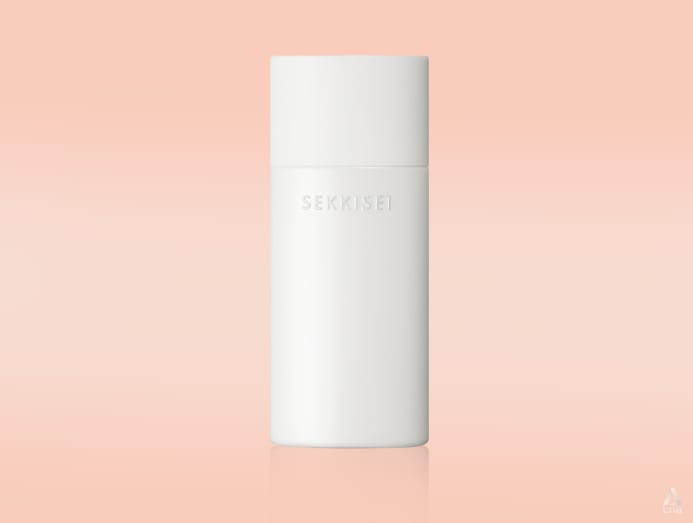
In addition to the use of zinc oxide to protect skin against harmful UV rays, this milky sunscreen also contains a unique Damage Resistant Complex alongside the brand’s ITOWA and Job’s tears seed extract to strengthen the skin barrier and prevent environmental damage. Plus, the formula is also alcohol-, paraben-, fragrance- and colorant-free, making it suitable for even the most sensitive of skins.
Available at Kose counters.
2. SIGI SKIN TEA-TOX SHEET MASK, S$32 (box of four sheets)
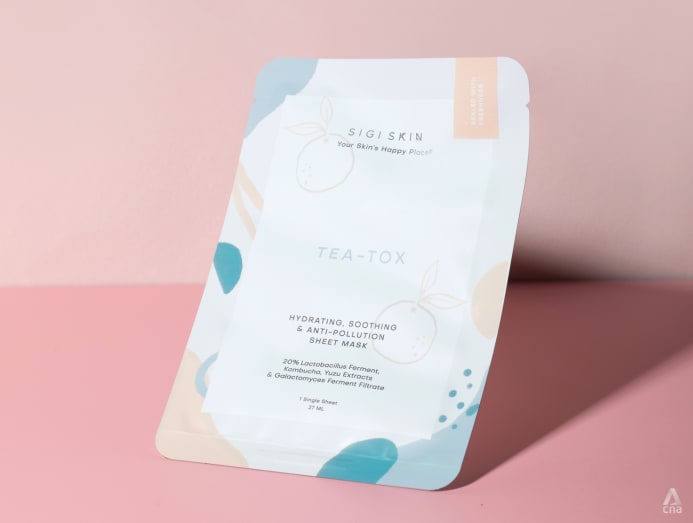
Enriched with a powerful blend of 20 per cent lactobacillus ferment, kombucha and yuzu extracts, galactomyces ferment filtrate and hyaluronic acid, each essence-filled mask instantly soothes and hydrates the skin. The result is a calmer, brighter and more supple complexion in just 15 minutes.
Available at www.sigiskin.com.
3. DERMA LAB 72 HOUR REHYDRATING SERUM-IN-GEL, S$42.90
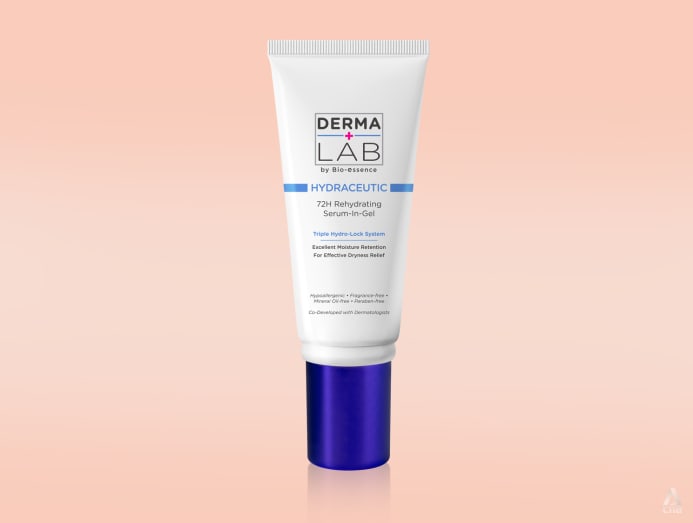
A lightweight moisturiser that intensively hydrates the skin from within with its blend of hyaluronic acid, ceramide and betaine. It not only delivers a moisture boost to dry and irritated skins, but also works to improve its skin barrier with diligent use.
Available at www.watsons.com.sg.
4. EST.LAB ACTIVCALM GENTLE HYDRATING CLEANSING MOUSSE, S$52
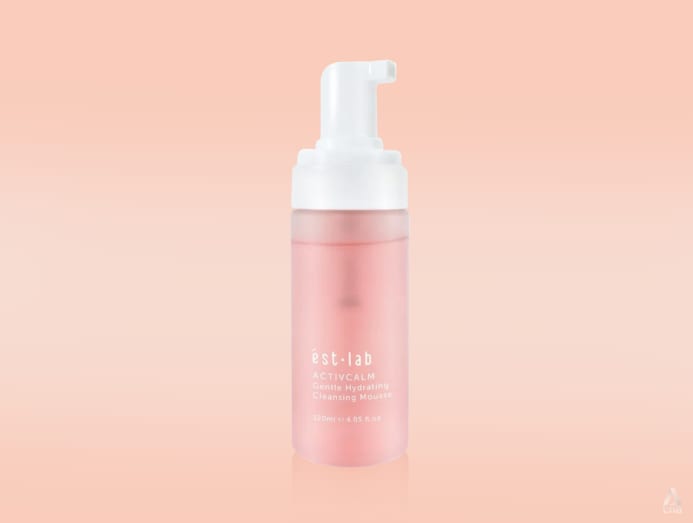
This ultra-gentle foam cleanser is packed with skin-loving antioxidant ingredients like trehalose, rose flower extract and panthenol to effectively clean away dirt, impurities and even light makeup. More importantly, it does so while balancing skin’s pH levels and without drying out the skin.
Available at www.estlab.shop.
5. MELIXIR VEGAN RELIEF FACIAL MOISTURIZER, S$74
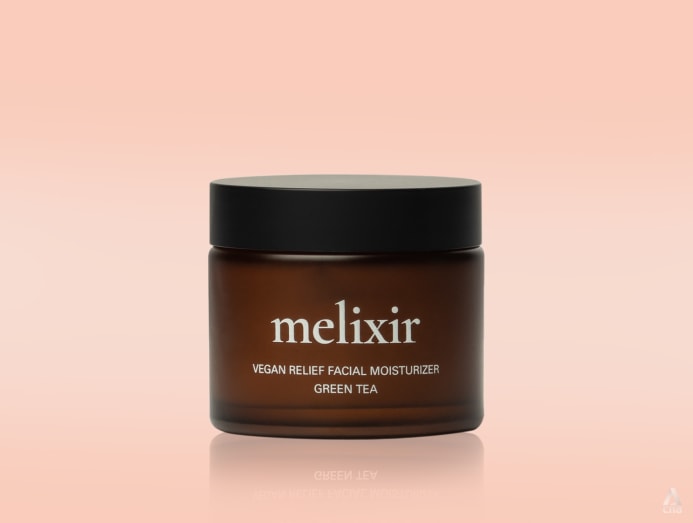
A lightweight hypoallergenic and cruelty-free moisturiser that soothes irritated skins with a nourishing blend of plant extracts including green tea, black cumin seed and centella asiatica leaf. Plus, it also contains aczero to keep blemishes at bay.
Available at www.sephora.sg.
6. SKIN INC SKIN SAVIOR DOSE – SOOTHE KIT, S$88
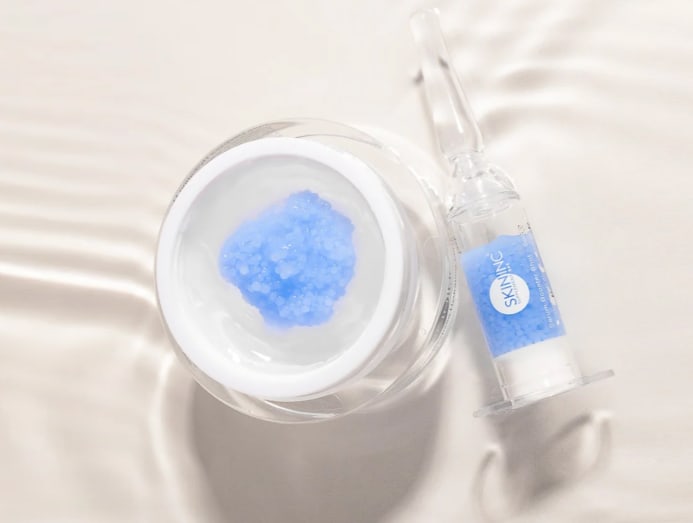
It’s the best of both worlds with the iconic Deepsea Hydrating Mask paired with a Soothe Serum Booster. The former is enriched with nourishing actives like soybean extracts, magnesium, potassium, sodium and zinc, while the latter is packed with not one, but four types of hyaluronic acid and ceramide. When used together, it works to imbue skin with moisture while strengthening the skin barrier for a healthy complexion.
Available at www.iloveskininc.com.sg.









